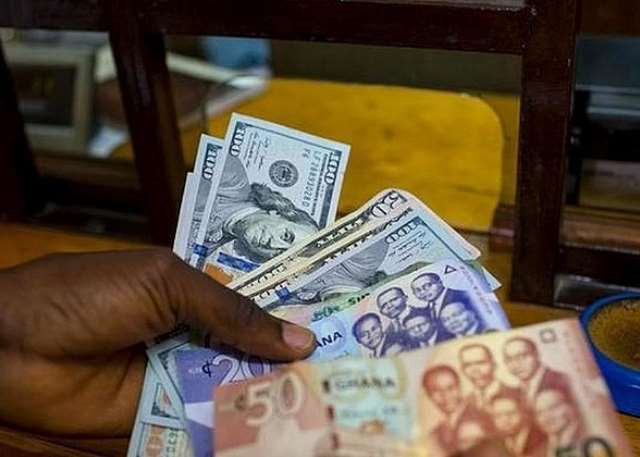The Ghanaian Cedi has experienced a notable appreciation against major international currencies, particularly the US dollar, as of April 25, 2025. This positive trend reflects a strengthening of the Cedi’s position in the foreign exchange market. Data compiled from Cedirates.com, a trusted source for currency information in Ghana, reveals a buying rate of GHS14.94 per dollar and a selling rate of GHS15.47. This implies that individuals can purchase one US dollar for GHS14.94 and sell one US dollar for GHS15.47. Forex bureaus, which provide currency exchange services directly to the public, offer slightly different rates. Those exchanging US dollars for Cedis can get GHS15.55 per dollar, while those converting Cedis to dollars will receive GHS15.90 per dollar. This variance reflects the margin applied by forex bureaus to facilitate their operations and generate profit.
The interbank market, where financial institutions trade currencies amongst themselves, exhibits slightly more favorable rates for the Cedi. The buying rate for the US dollar on the interbank market stands at GHS14.89, while the selling rate is GHS14.91. This smaller spread between buying and selling rates is typical of the interbank market, characterized by larger transaction volumes and lower operational costs compared to forex bureaus. The Cedi’s performance against other major currencies also reflects an upward trajectory. The British pound trades at an average rate of GHS19.75 when converting pounds to cedis and GHS20.56 when converting cedis to pounds at forex bureaus. Similarly, the euro exchanges at GHS16.85 when buying cedis with euros and GHS17.66 when buying euros with cedis.
The Bank of Ghana, the nation’s central bank, reports similar interbank rates. For the British pound, the selling rate is GHS19.86, closely aligned with the average forex bureau rate. The euro’s selling rate on the interbank market stands at GHS16.95, again reflecting a comparable value to rates observed at forex bureaus. These consistent rates across different exchange platforms signal a stable and predictable currency market, contributing to confidence in the Cedi’s value. This consistency is crucial for both individuals and businesses engaged in international transactions.
Money transfer services, a popular method for remittances and cross-border payments, offer competitive exchange rates for those sending money to Ghana. LemFi and Afriex, two prominent money transfer operators, provide attractive rates for US dollar and British pound transfers. LemFi offers a rate of GHS15.12 per dollar, while Afriex offers GHS15.40 per dollar for transfers from the US or UK to Ghana. For British pound transfers, LemFi provides a rate of GHS20.10, and Afriex offers GHS20.60 per pound. These rates are generally more favorable than those offered by traditional banks and reflect the competitive landscape of the money transfer industry.
The Euro exchange rates offered by these money transfer platforms also present competitive options. Afriex provides a rate of GHS17.58 per euro, while LemFi offers GHS17.20 per euro. These variations in rates highlight the importance of comparing different providers before initiating a transfer to ensure the most advantageous exchange rate. By leveraging these money transfer services, individuals can often save on transaction fees and secure better exchange rates compared to traditional banking channels.
For those making digital subscription payments for services like Netflix, Spotify, or Apple Music using Visa and Mastercard, the exchange rates are slightly higher. Visa transactions are processed at a rate of GHS15.84 per dollar, while Mastercard transactions are processed at GHS15.94 per dollar. This difference may be attributed to the fees charged by the respective card networks for processing international transactions. Understanding these variations in exchange rates across different platforms allows individuals and businesses to make informed decisions about their foreign currency transactions and optimize their financial strategies. The overall picture presented by this data suggests a positive outlook for the Ghanaian Cedi, with its continued appreciation against major international currencies.


